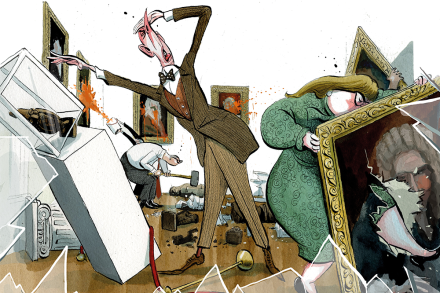Why the Rosetta Stone shouldn’t be returned to Egypt
The Rosetta Stone is said to be the most visited object in the British Museum. By and large the most popular, most beautiful or most impressive objects are found at the top of the shopping list of those who want to send objects back to their place of origin. Yet here is a piece of debris that, if installed in the Grand Egyptian Museum in Giza, would look as out of place as a dirty pair of trainers in the Athenaeum. This, after all is (or rather will be, after endless delays in its opening) the final resting place of Tutankhamun, a museum rich in gold and lapis lazuli lying




















